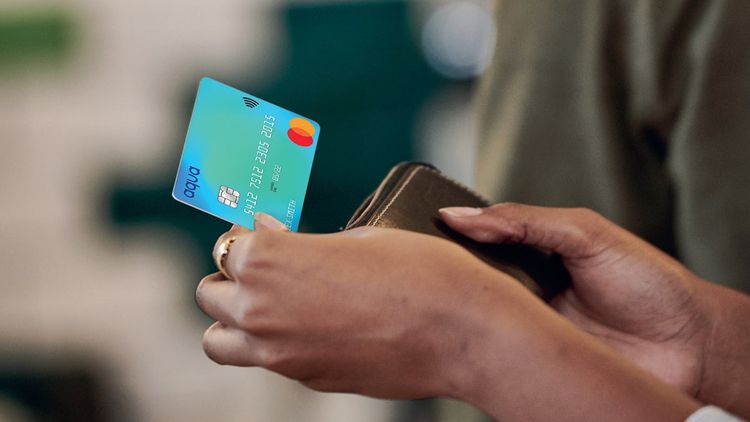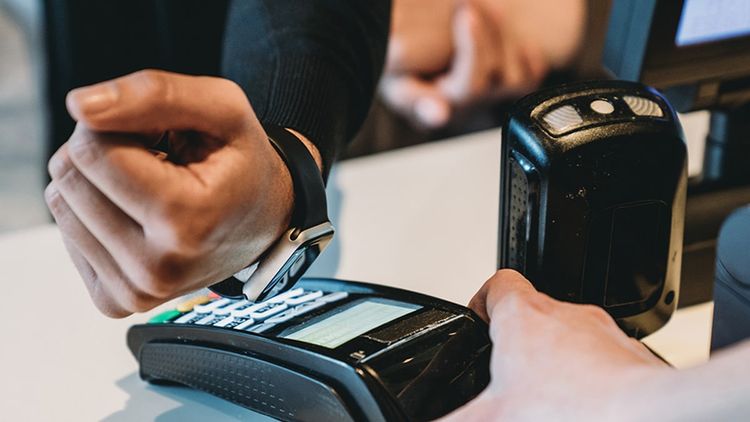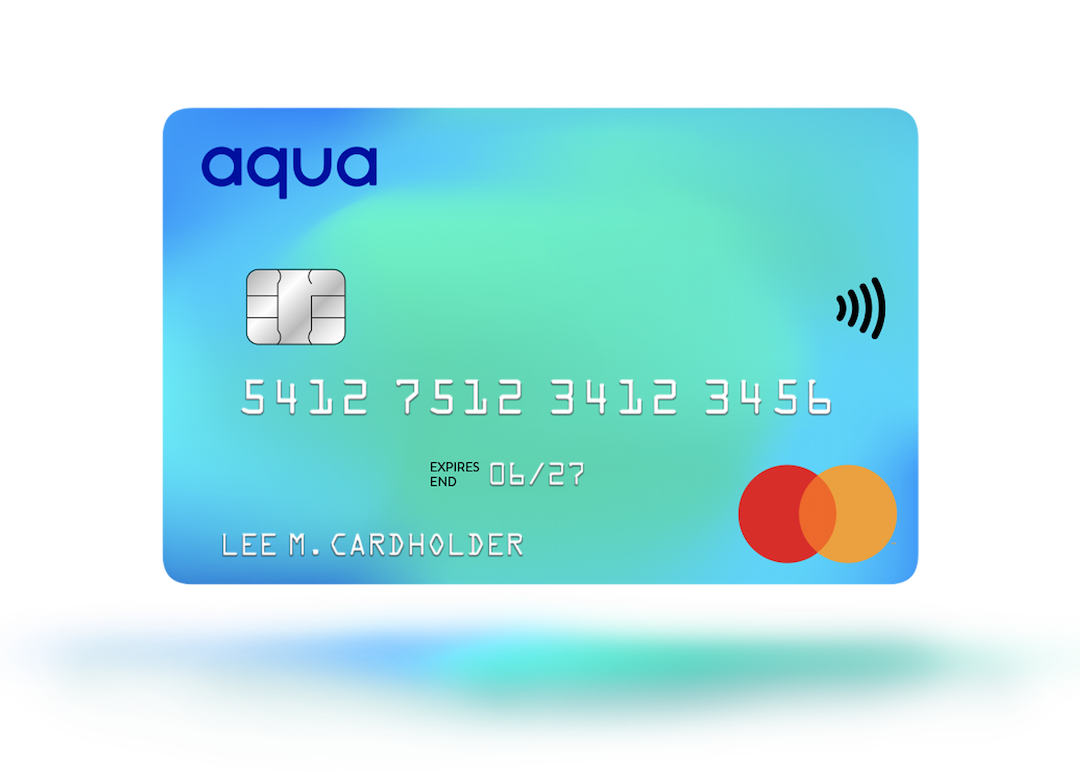In this article
Staying safe online
Find out what you can do to protect your security when browsing the web.

With the world in our pockets and an infinite number of websites, tools and apps to help us manage our daily lives, things like online shopping and banking have never been easier. But with increased convenience comes heightened risk of online fraud, as scammers try to find new convincing ways to access your personal data. Aqua knows that staying safe online is more important now than ever. In this guide, we'll help you take control of your internet safety and protect yourself from online scams.
Being aware of scams
As technology evolves, criminals use the internet in increasingly sophisticated ways to try and steal your personal information to commit identity fraud, find out sensitive information about you, or to steal your credit card or banking details for their own financial gain. However, if you know what to look for, you can keep yourself safe.
Staying safe while shopping online
We're all shopping online more and more, whether ordering for things to be delivered at home or just downloading a film. But do you know what to look for to make sure your purchase is a safe one?
- Always shop using reputable and well-known websites, for example high-street brands or well established online-only stores. If this isn't possible, take the time to check the website reviews on a trusted review platform, such as Trustpilot.
- Even if you think you're dealing with a brand you know and trust, you might not be. Fake and phishing websites can be tricky to spot because they're designed to look like the real thing. Read through the content on the site, is there:
If you spot any of these things, the website might not be the genuine article.- Broken English
- Poor spelling and grammar
- Sentences that don't make sense
- Before buying anything, it's important to make sure you're using a secure website. URL's often start with ‘http', but secure websites start with ‘https'. The ‘s' signifies that the website is secure to send payment details over. If it's not ‘https', hackers could be intercepting your data as it's transmitted to the website. Look at the website address – if there's a padlock symbol in the URL bar, that means the page is likely to be secure. Go further by clicking on the padlock symbol to be sure that the safety certificate is for the website you are on.
- Check for contact details, such as a phone number, email address, and a postal address. Reputable sites should give you ways to get in touch with them directly other than through the website. What's more, you can check the contact details against those listed elsewhere to make sure they're legitimate.
Stay safe
Above all, remember: if you're at all worried about buying from a website, don't risk it.
How hackers can access your information
Scammers have several ways to get their hands on your information, allowing them to commit fraud or access your bank accounts.
Let's look at the most common methods used by hackers including spam emails, viruses and malware, so you know what to look for.
Phishing emails
A common way for fraudsters to get your personal information is by email. As well as being known as junk or spam emails, they can be called ‘phishing emails' as they are essentially fishing for your data. This can be done in the following ways:
- Sending you a legitimate looking email from your bank or other financial services companies. These will direct you to a fake website encouraging you to sign in, giving them your login information. Or they may instruct you to download an attachment within the email or on the fake website containing a virus.
- Sending emails regarding a surprise money windfall such as lottery or competition winnings, or even inheritance from a long lost relative. Alternatively, they pretend to be an old friend or wealthy stranger who needs money in the short term, to release significant funds in the future. In order for you to claim the prize, money or reward you'll be asked to send them a smaller amount of money. If you do receive a suspicious looking email always take the following precautions:
- Check the email address – does it match that of the company?
- Don't reply with any personal information or click on any links within the email body – this will show them that the account is active.
- If the email claims to be from an organisation you use, open a new browser window and search for official website via Google or another search engine and contact them using one of their confirmed telephone numbers.
- Delete the email or mark the email as a phishing scam if your email provider gives you the option.
Again, if you're in any doubt – don't click or respond. Call the organisation directly to ask if they've sent you anything.
Virus protection
Computer viruses can be spread by email or hidden in files that you download from the internet. Once they've taken control of your computer the virus can delete your data, lock you out of your computer or make it unusable. Another type of virus you'll need protect yourself from is malware, short for malicious software. These can often be hidden in downloads from unsecure websites or pop up ads. Also known as spyware, once downloaded it can steal your personal data.
You can protect yourself from these threats by installing antivirus and anti-malware software from a trusted website. You can get free antivirus software, but regardless of whether you pay or not, they are only effective if they are kept up to date, so look for software that auto-updates.
Public Wi-Fi networks
Where possible it's best to avoid using public Wi-Fi. An unsecure connection is like leaving the door open for scammers to intercept your private data. A secure network will encrypt your personal information (name, address, card details), stopping hackers from being able to read it.
Creating a secure password
It's always tempting to default to any easy password like your first pet's name, or mother's maiden name. But by doing so you may be making it easier for scammers to work out your password, giving them access to your various accounts.
Here are some tips on how to strengthen your password:
1. Don't use obvious passwords like:
- Important dates i.e. anniversaries or birthdays.
- Maiden name or kids or pet names.
- Numbers in a sequence, i.e. ‘1234'
2. Use a mixture of random numbers, letters, capital letters and special characters for example £, or #
3. Create a different password for each account you have.
4. Update your passwords regularly
Protecting your passwords
Now that you've chosen your new secure password, you need to keep it safe. It may be tempting to create a document on your computer or to write them in a notebook, but these can be easily found (or lost!). Follow these tips to keep your password a secret:
- Use a secure online password saving service.
- Never save your passwords on a public or shared computer.
- Avoid using passwords on public computers, but if you have to, be aware of your surroundings and who may be watching.
What is Mastercard SecureCode?
If you're using your credit card online, it's definitely worth opting in for Mastercard SecureCode. It's a quick and easy service provided by Mastercard and their associated credit card providers.
While registering your card, you choose a 3D secure pin that will be required whenever you make a purchase on a participating website. As long as you don't share your 3D pin, SecureCode protects you from unauthorised online purchases on all partner sites.
All of our Aqua Cards are eligible for Mastercard SecureCode to keep you safe online.
Your rights online
Now that you're aware of how to stay safe online and spot a scam, you're in a strong position to protect yourself. Taking all of the precautions listed above will mean you're unlikely to fall foul of credit card fraud, but if the worst does happen, it's good to know your rights.
If you suspect your Aqua account has been a target of online fraud, you can contact our helpline immediately on 0333 220 2691. Find out more about how we work to prevent credit card fraud in our customer FAQ.
Failure to make payments on time or to stay within your credit limit means that you will pay additional charges and may make obtaining credit in the future more expensive and difficult.
Contributors

Vanessa Stewart
Vanessa is an editor at Aqua.

Victoria Smith
Victoria is an editor at Aqua.
You might also like
Slide 1 of 3
Preventing credit card fraud
Get tips on how you can prevent credit card fraud and keep your card safe.
Victoria Smith

Advantages of using a credit card
From spreading costs to building credit history, learn the benefits of credit cards when used responsibly.
Vanessa Stewart

Why should I use a digital wallet?
Find out how spending with digital wallets such as Apple Pay and Google Pay could be safer and easier.
Victoria Smith
The smart way to build better credit
Aqua is the credit card that gives you the power to improve your credit score
